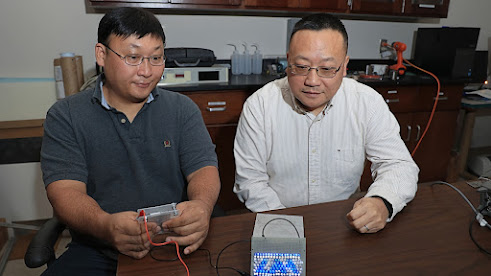.jpg) |
| Boron nitride nanotube material in a crucible for heating at Florida State University's High-Performance Materials Institute. Photo Credit: Mark Wallheiser/FAMU-FSU Engineering |
A team of FAMU-FSU College of Engineering researchers at the High-Performance Materials Institute is exploring the thermal limits of advanced nanomaterials, work that could have a direct impact on medicine delivery systems, electronics, space travel and other applications.
The research team, led by Assistant Professor in Industrial and Manufacturing Engineering Rebekah Sweat, completed the first-ever study on how purified boron nitride nanotubes remain stable in extreme temperatures in inert environments.
Their work was published in the journal Applied Nano Materials.
Boron nitride nanotubes, or BNNTs, are stronger and more resistant to high temperatures than carbon nanotubes. Like their carbon cousins, they are structures measured by the nanometer — a length equal to one-billionth of a meter.


.jpg)



.jpg)


.jpg)


.jpg)
.jpg)










.jpg)
